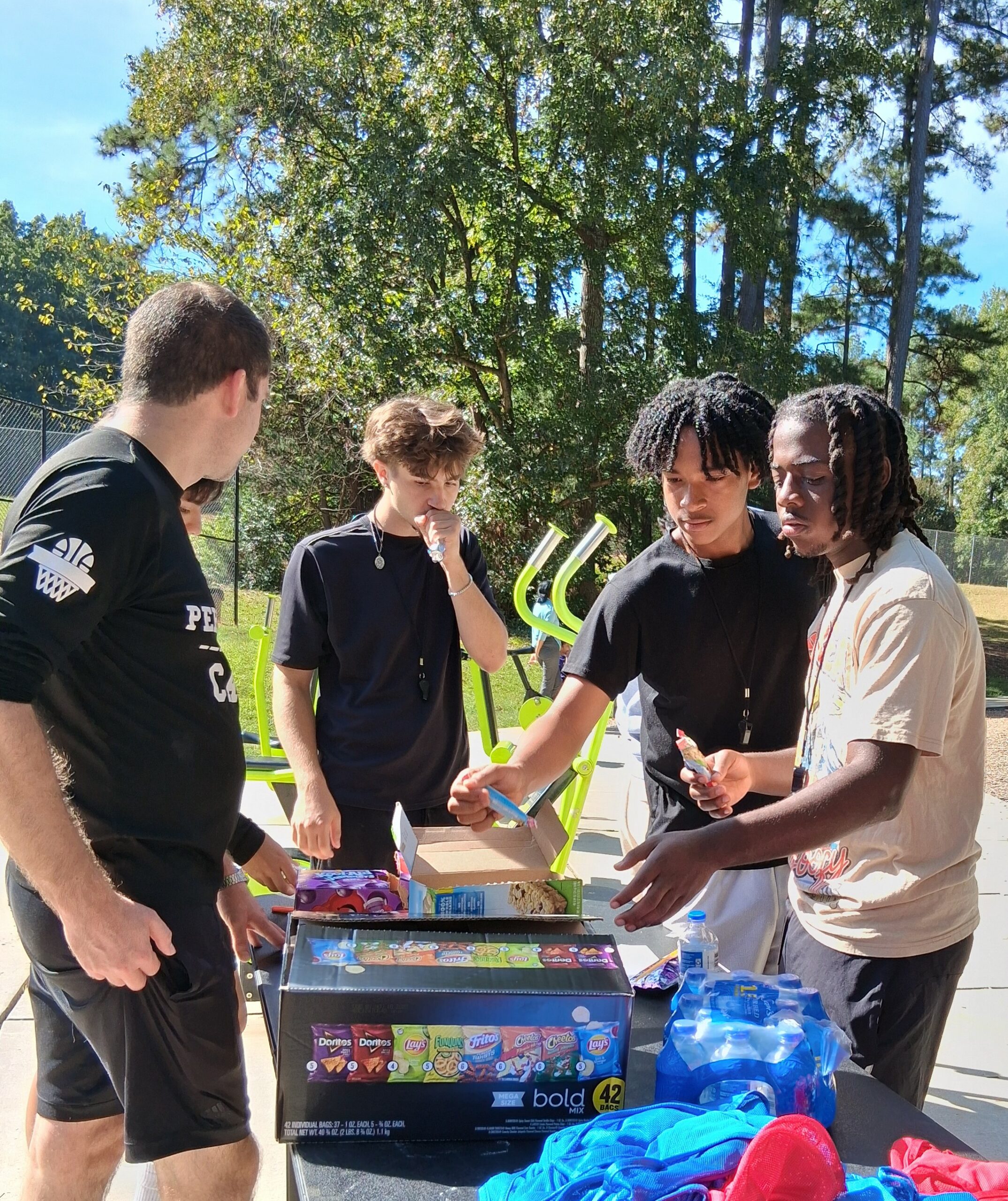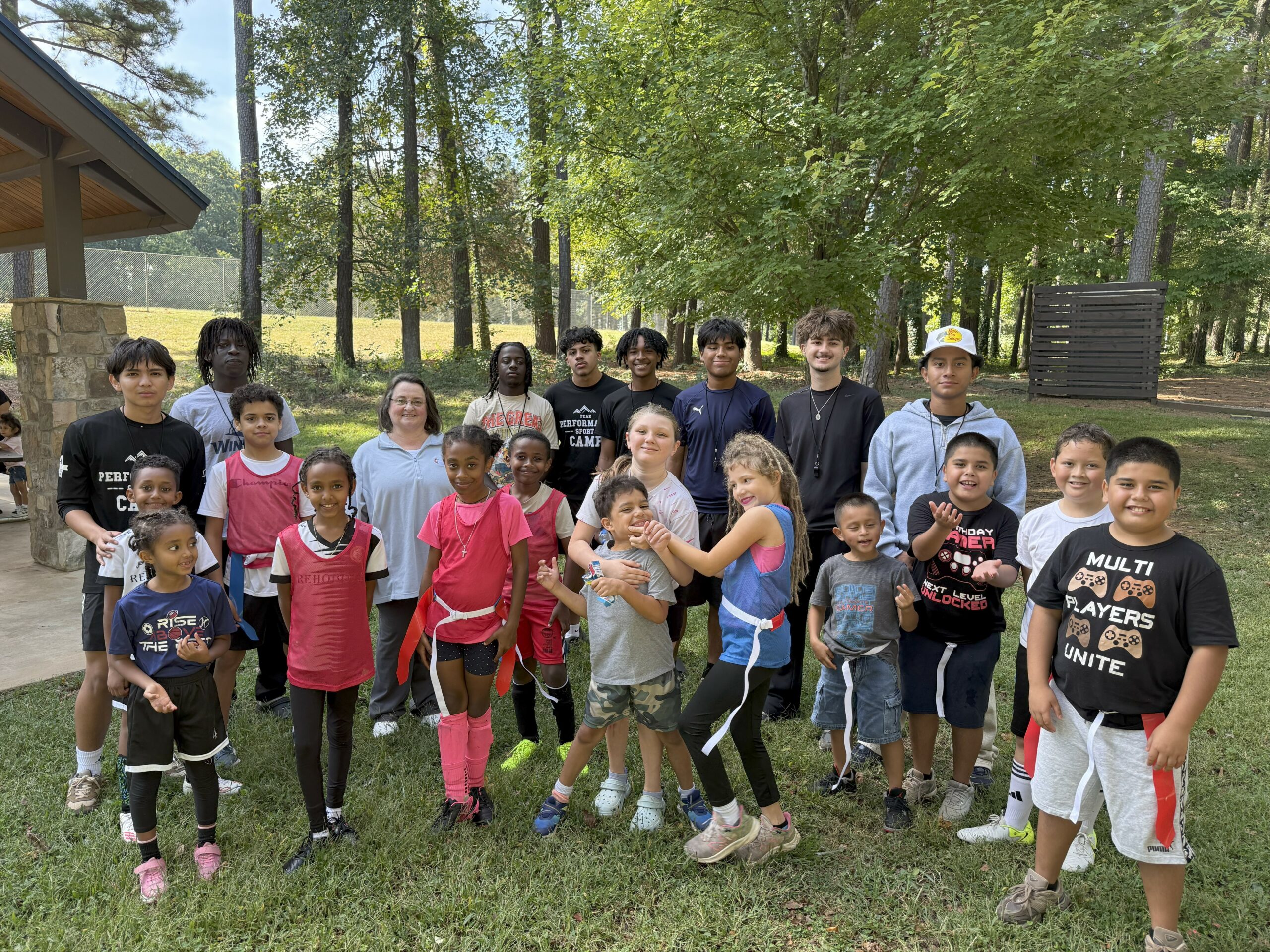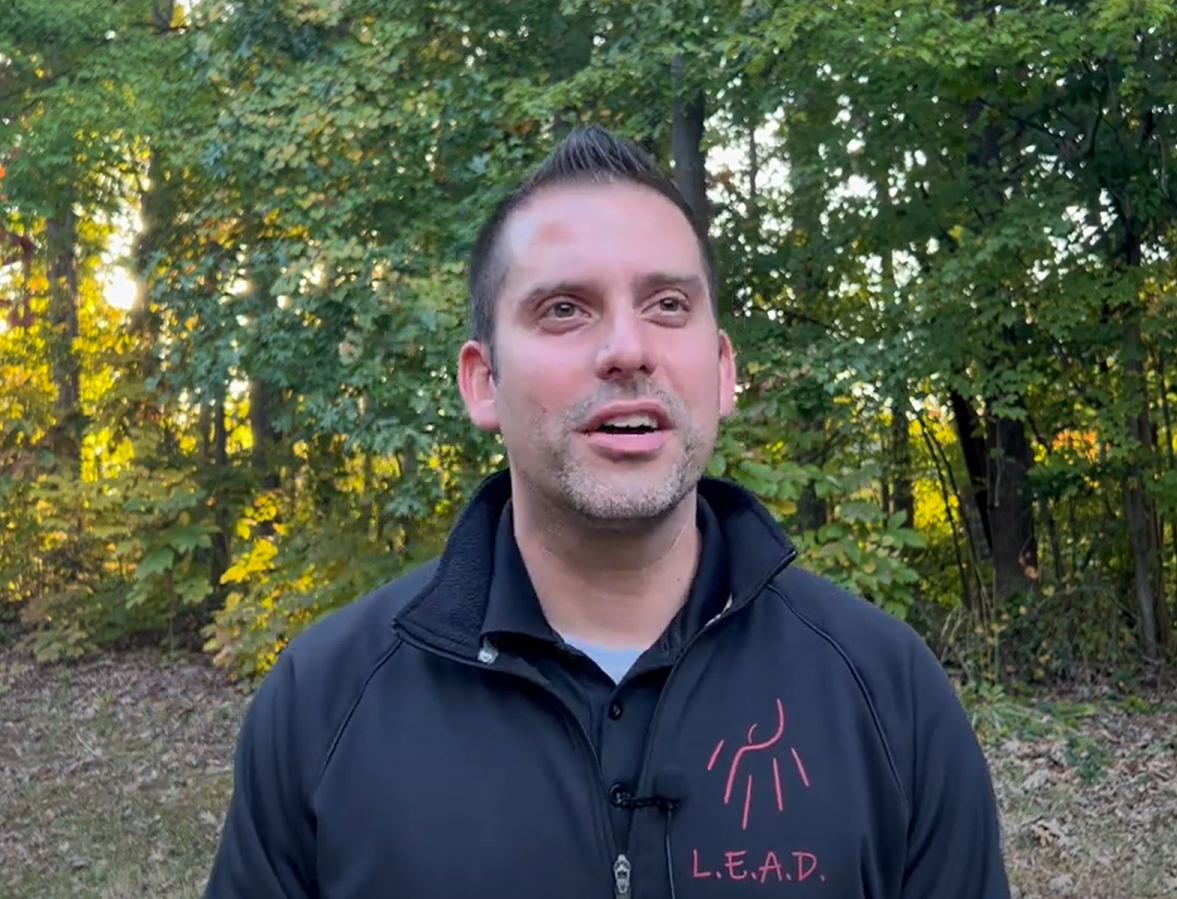
LEAD Forward Charlotte began as an after-school program for students from East Mecklenburg High School. Today the nonprofit has grown into a year-round operation helping young people discover their gifts through service, entrepreneurship and academic achievement.
Director Jonathan Janus taught English and Social Studies for nine years at East Mecklenburg. His vision is to build community among the diverse populations of East Charlotte, a vibrant yet under-resourced part of town.
“Each year with our freshmen, I give them the three words: anger, fear and hope,” Mr. Janus said. “I ask them which of these emotions is the strongest motivator.”
The top responses are anger and fear: “It’s all they know. It’s all they are given from the leaders they see.”
LEAD Forward Charlotte seeks to instill a different perspective. With support from the Foundation’s Reynolds Ministry Fund, participants practice being the hands and feet of Jesus — and go home inspired to work for justice.
Encountering God at work
Students maintain a community garden, mentor elementary-age students, host soccer and basketball camps, and prepare meals for moms attending ESL classes at Cokesbury UMC. The church provides space for these activities at its 9.5-acre campus on Idlewild Road.
Rev. Annalee Allen, Director of Reynolds Ministries and Programs, visited on a day when youth leaders played flag football with students from Idlewild Elementary School (pictured below).
“Their willingness to invest time and energy in the younger students reflects a deep sense of purpose,” Annalee said. “It is a beautiful example of God’s presence working through everyday relationships.”
The partnership has invigorated Cokesbury, a 290-person congregation searching for ways to stay vital. Cokesbury also serves as a host site for UrbanPromise and its empowerment programs for children.
“It’s given us some energy we might not have had otherwise,” said Chris Betts, the church’s lay leader. “We see that God’s going to use us in different ways than in the past. And church is going to look a lot different.”

Too many boys are struggling
The work has taken on new resonance in the post-pandemic era. Many young people have lost meaningful connection with just about everything but smart phones, a trend that overlaps with a rise in mental health issues.
Researchers point to a crisis among boys, in particular. Fifteen percent of young men today say they don’t have a close friend, a five-fold increase since 1990. Boys are less prepared to start school and, at nearly every point in K-12, have lower GPAs than girls.
Anthony Frederick, a 2025 graduate, says he and his classmates were rowdy, unfocused and disconnected when they arrived at LEAD Forward Charlotte in 2021.
“Part of that had to do with entering school as quarantine was ending,” Anthony said. “We had lost our eighth grade year and still had some of that immaturity left in us.”
Friendships and collective resolve
Anthony and his peers found a place of belonging. Among their initial assignments was cleaning out the basement of Cokesbury and refashioning the space as a headquarters for the group.
Members of the class started a business called Lil’ Burger using a food cart gifted by the church. It didn’t work out due to regulatory obstacles, but the venture led to an invitation to staff the concession stand at a nearby swim club. Now future classes have access to a job opportunity in the summer. There are plans to expand the business to more pools.
“Watching all of our skills come together,” Anthony said, “reinforced our friendships and strengthened our collective resolve.”
Sophomores prepare dinner for moms and families attending ESL courses at Cokesbury. A rotating menu developed by the students features American and Latin American dishes and healthy sides.
Wednesdays are reserved for school work. Returning students have improved their grades by half a letter to a full letter grade over last year, thanks in part to tutoring and academic support.
The neighborhoods around Cokesbury are among the most ethnically diverse in Charlotte, reflected in the assortment of grocery stores and more than 50 languages spoken. While Latino and Black residents make up two-thirds of the population, the area is also home to Asian and Indian communities.
Mr. Janus sees it as an ideal setting to bring God’s vision to life. It can happen at the grassroots level, led by young people finding their purpose in the world and learning what it means to live out the truth of the Gospel.

To be successful in helping young men become good leaders, we must give them the opportunity to minister to their neighbors.
- Jonathan Janus, director of LEAD Forward CharlotteAt street level, youth get up-close look at life on the margins
United Methodist youth traveled the streets of uptown Charlotte to see economic disparity - and the hope of God's enduring presence.
Reflecting on Thomas Wolfe and the path that led me home
Since my return to the Foundation staff following 18 years in local church ministry, I have found the familiarity of the “home” I knew – same values, similar mission, same ministries. The culture I saw taking root is now flourishing.
‘I can’t say enough about how life-changing it’s been’
Too many clergy have to choose between paying off loans and taking care of personal and family needs. Rev. Mark Curtis shares his experience in a Foundation program that helped him gain financial peace.